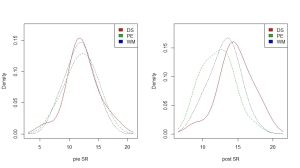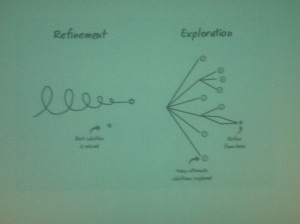
Matthew Tyler-Jones
I came to cultural heritage via five years working at Midland Bank when I left school. In my free time, I volunteered as a costumed interpreter at Kentwell Hall and, with re-enactment societies, at various medieval sites around the UK and France. When, one evening, a few of us said “we could make a business out of this” I left my job at the bank to go to college, first to get an Art Foundation and then to Manchester Polytechnic to join an innovative course called Design for Communications Media.
I specialised in Educational Media Design, with the intention of applying what I was learning to cultural heritage. During my vacations and upon graduation I worked for the nascent company my friends had started, Past Pleasures, creating immersive living history festivals at Lancaster and Tunbridge Wells, as well as projects including: an exhibition for the centenary of the Commonwealth Institute; a design for a metafictional Sherlock Holmes exhibition in Croydon; and, a game that combined real-time investment advice from 300 year-old characters at the Bank of England Museum with a digital simulation, tracking the players’ investment portfolio from the founding of the bank to its tercentenary.
In 1996 I helped found JMD&Co, and for two years I also lectured on Heritage Tourism and Visitor Management and Interpretation modules for a Portsmouth University validated HND/degree course at Farnborough Technical College.
Subsequently, I enrolled in the new Distance Learning delivered Masters’ degree in Museum Studies at Leicester University, where I became interested in the social use of space, particularly Bill Hillier’s “space syntax,” and the increasing futility of cultural heritage sites trying to tell doggedly linear stories in three-dimensional spaces. Although my dissertation explored models for mapping interpretation, and particularly learning styles, onto spaces, a satisfactory reconciliation of linear story and three-dimensional space eluded me.
After graduation, I decided my time in the “small business” end of cultural heritage was over for a while, and I left JMD&Co to join a cultural institution, the National Trust, as a Regional Community, Learning and Volunteering Manager. I brought the first National Trust iPad into use at Batemans, where, combined with a wax cylinder record player, and the help of renowned folk singer, Jon Boden, we’ve returned Rudyard Kipling’s voice back into his old home.
However, one of the innovations which I am most proud of is the National Trust’s virtual tours. Working with a small company, and a range of disabled stakeholders, we created a touch-screen based human computer interface that could also, if required, be controlled with other input devices, and allowed visitors with a variety of disabilities to fully enjoy the virtual tour. The teams’ achievement was recognised with a Jodi Award for Excellence in accessible digital media in 2008.


Page 9 











